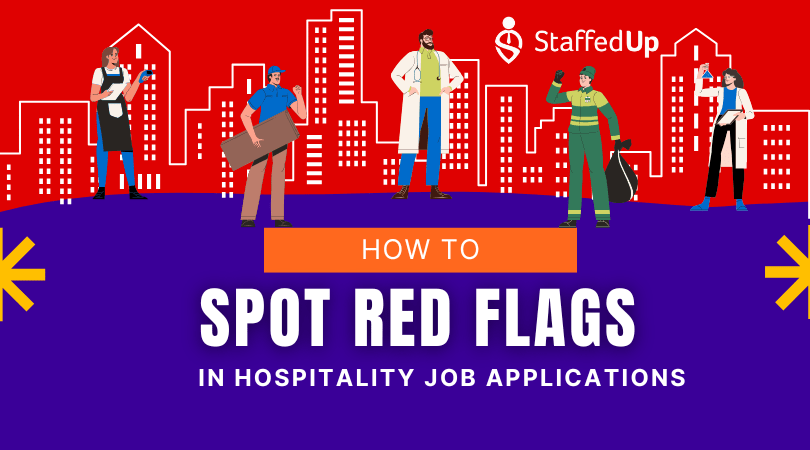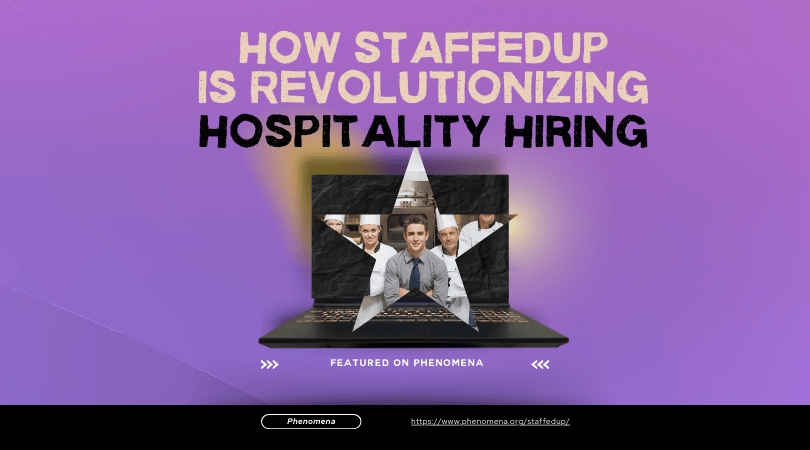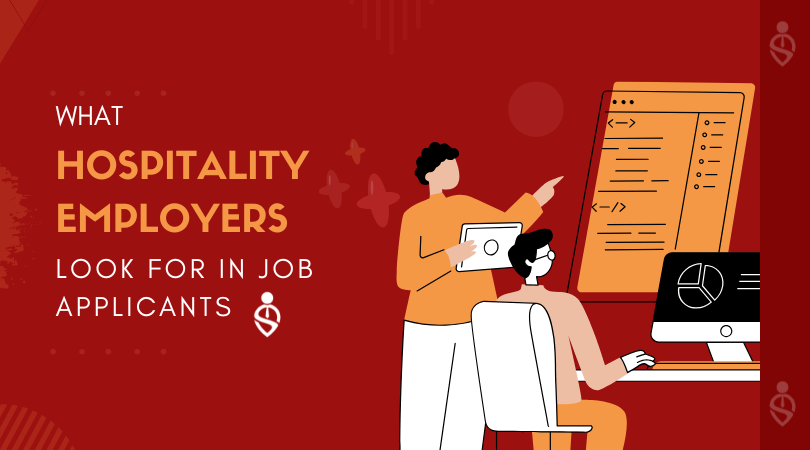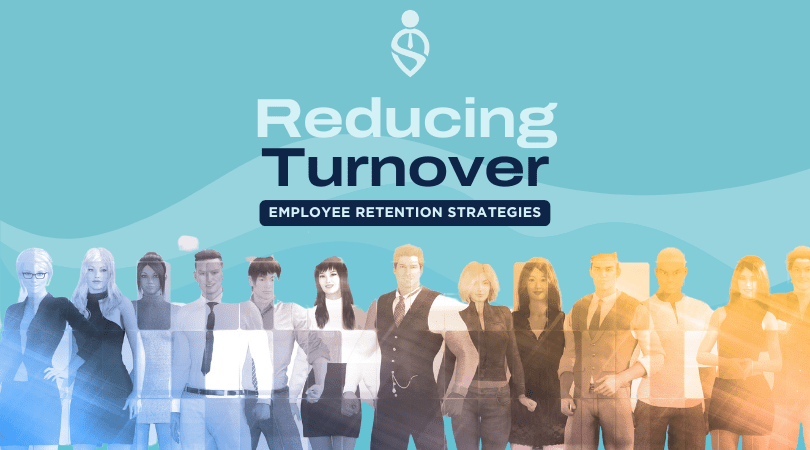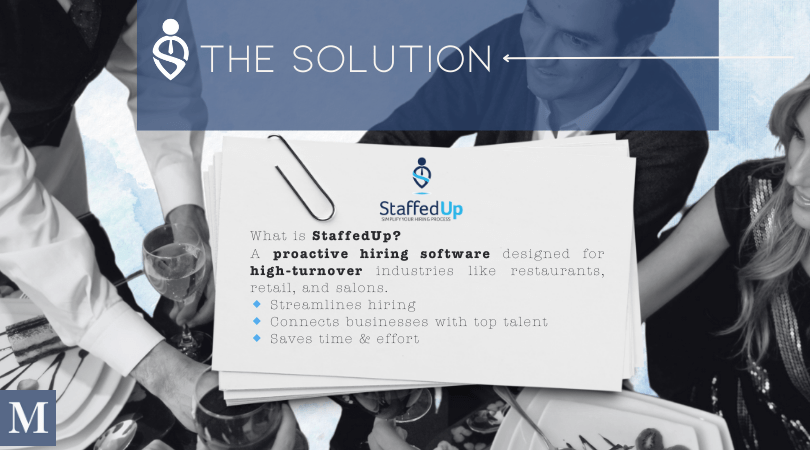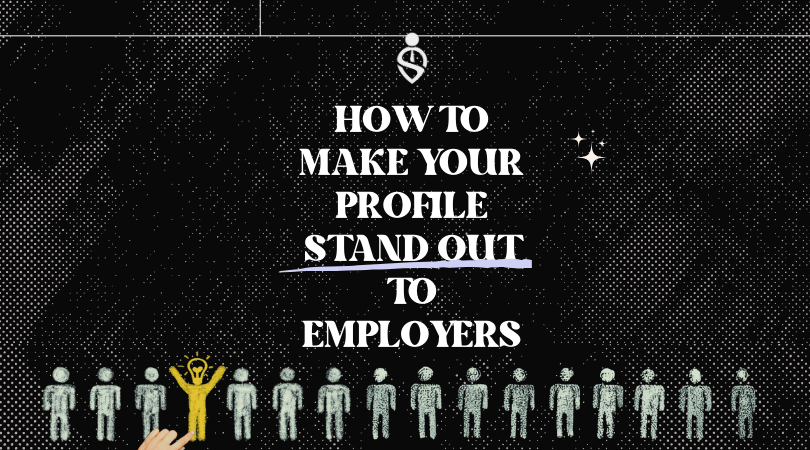By Tre Kent and Xiaoyi Zhang | January 30, 2025
Billy Giordano and Jeremy Phillips set out to revolutionize hiring in the restaurant industry.
Both natives of Missouri, the two co-founders of StaffedUp combined years of experience and a shared vision to create a proactive hiring software.
It is designed for owners of restaurants and other high-turnover businesses to help hire more qualified people in less time.
What began as a simple idea discussed over calls and weekends evolved into a full-fledged startup, rooted in the local restaurant scene and fostered by the entrepreneurial spirit of Missouri’s business landscape.
The inspiration for StaffedUp came directly from Giordano and Phillips’ backgrounds in the restaurant industry, where they witnessed firsthand the inefficiencies of traditional hiring methods.
“Honestly, there was just nothing like it in the space at the time,” Phillips said.
“Everybody was just taking paper applications or having to refer friends,” he said. “If somebody quits or leaves, you just grab maybe the top 10 applications on your desk out of the hundreds that are sitting there.”
How it works
StaffedUp developed a streamlined software platform that helps businesses connect with job seekers, cutting down hiring times and ensuring a better match between employers and employees.
Built initially for the restaurant industry, the software is now used across various sectors, including retail, health clubs and salons.
StaffedUp took a significant leap in 2015 when it went from an idea to a business after winning $2,000 as the top idea in Startup Weekend Columbia, sponsored by the Regional Economic Development Inc.
“We worked all weekend, pretty much from the second we got there until 4 and 5 in the morning, and then would come back at 7 in the morning and do the same thing,” Giordano said. “Then we pitched on Sunday and ended up winning.”
The dedication and teamwork that helped the duo achieve their Startup Weekend success is a testament to the original, complementary skills they bring to the table.
How it started
Raised in St. Louis, Giordano learned the value of hard work from his grandfather, a self-made businessman. Giordano’s entrepreneurial spirit was evident even as a child, whether he was selling candy bars for a profit or helping neighbors with odd jobs.
“I just figured it was pretty easy to make money,” Giordano said. “You just had to go and work, and people needed help doing things.”
After returning to Missouri from Colorado State University, he managed a restaurant in Columbia, learning the ins and outs of the business.
“My thought there was, you know, I can learn how to open and run a restaurant from the ground up,” Giordano said.
By 2008, he had opened his own establishment, Room 38, which became a mainstay in Columbia’s dining scene.
How it solved a problem
Over the years, Giordano experimented with other business ventures, including rental properties and even a frozen yogurt shop. But it was in the trenches of the restaurant industry that he and Phillips noticed a consistent problem: hiring.
“We are just an efficient and user-friendly hiring software built for high-turnover employers,” Giordano said. “Employers like ourselves to hire better people in less time.”
The pair’s leap into tech wasn’t entirely smooth. Neither Giordano nor Phillips had a technical background, which presented challenges.
“Being a non-technical founder trying to start a software company was lessons learned the hard way, a lot,” Giordano said.
They went through several development teams, each promising to deliver the vision they had for StaffedUp but often falling short of expectations.
“In development, I say, ‘Here’s my budget, here’s my product. Is it doable?’ They say, ‘yes’ … but the reality of it is that it would actually take them 13 months and 200k,” Giordano said.
Despite the setbacks, Giordano and Phillips remained undeterred. Their determination to build something valuable for the industry they loved drove them to continue investing time, money and energy into StaffedUp.
“We just keep on pushing through, and now we’re kind of hitting our stride,” Giordano said.
StaffedUp now has nine employees, including its development team, a number Giordano believes is perfectly optimized for their needs.
Who uses it
Today, the company serves more than 3,000 businesses and has attracted hundreds of thousands of job seekers, operating in 32 states.
The platform offers a flexible pricing model, which starts at $29 a month for basic features, as well as discounted options for semiannual and annual subscriptions, with the goal of making the service affordable for as many businesses as possible.
The average customer has been with them for over three years. Aside from that, Giordano said they are massively cost-effective for the value because their goal is to encourage people to use the tool as a proactive solution, not reactive.
One of StaffedUp’s biggest strengths, Giordano said, is its practical, user-centric design, born from their own experiences in the restaurant world.
“It’s kind of a ‘for us, by us’ concept,” Giordano said. “We are the people we sell to, so we understand their pain points. We understand exactly what the day-to-day is and what they need.”
Phillips said StaffedUp is built with simplicity and efficiency in mind, which sets it apart from other hiring software that may feel cumbersome or out of touch.
Who designed it
While StaffedUp has carved out a niche in Missouri’s entrepreneurial landscape, the company’s culture and values reflect the close-knit nature of its founding team.
Both Giordano and Phillips grew up near each other in Missouri and have been friends for more than 27 years, a bond that has helped them navigate the challenges of running a startup.
“If you were to guess that two extremely like-minded people would be able to work relatively conflict-free for as long as we have … you’d be right,” Phillips said. “Somebody who can, like, shoot you straight, tell you the hard stuff when it’s hard to say … that’s critical.”
Reflecting on their journey, Giordano shared advice grounded in experience.
“Get mentors, find people that are doing what you want to do, or have done what you want to do, and ask questions,” Giordano said.
“When I started the frozen yogurt shop, I didn’t even like frozen yogurt … It showed. We ended up selling it … wanting to make money is not a good reason to start a business. You should love what you do first, and the money will come.”
Looking ahead
As they look to the future, Giordano and Phillips are committed to expanding StaffedUp’s reach, with plans to continuously enhance the software based on client feedback. Recently, they launched the third version of their platform, featuring a redesigned dashboard and additional tools to further streamline the hiring process.
“It just looks better, it feels better, it’s just more engaging,” Phillips said.
Missouri’s startup ecosystem has played a supportive role in StaffedUp’s growth, Phillips said.
“The community is extremely welcoming in tech for what we’ve experienced,” Phillips said. “Everybody’s always willing to help, give insights and offer opportunities.”
For Giordano and Phillips, StaffedUp isn’t just a business — it’s a mission to uplift an industry they care about deeply. They’ve built a platform that not only helps fill open positions but strengthens the connection between businesses and job seekers.
“It’s something that helps an industry that I’m completely obsessed with,” Phillips said.
“Knowing that we can make a positive impact, it’s something that helps make you want to get up and do it every day,” he said.

